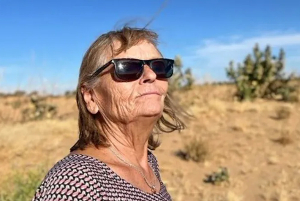Ghana will on Thursday July 26, apply for a credit of $110 million from the International Development Association (IDA) to provide immediate balance of payment support to fill up the country's financing gap which will occur mainly during the third quarter of 2001.
Once the World Bank Board approves the Credit the proceeds of the first tranche of the Credit will be deposited by IDA in an account at the Bank of Ghana.
Conditions covering the Credit, the third economic reform support operations credit, indicate that if withdrawals from this account are used for ineligible purposes as defined in the Credit Agreement, IDA will require the government to either return the amount to the account or refund the amount directly to IDA.
The administration of this Credit, according to the World Bank, will be under the responsibility of the Ministry of Finance. Although an audit of the deposit account will not be required, the Bank reserves the right to require audits at any time.
The Minister of Finance will monitor implementation of the policy and actions under the programme, while the IDA will monitor it through supervision missions.
The World Bank report and recommendation says that the support was conditional on actions taken prior to credit approval to demonstrate progress in turning the fiscal situation around.
The terms of the credit facility, which are yet to be put before parliament, fall under the standard IDA terms with a maturity of 40 years.
However, a covering letter from the Minister of Finance requesting the IDA to provide the credit, pledged the Government of Ghana's commitment to implement all the reform requirements as contained in the policy measures. These are attached in a Letter of Development Policy alongside measures agreed with the IMF under the Poverty Reduction Growth Facility (PRGF).
The proposed Credit, according to a World Bank report and recommendation covering the facility, is consistent with the Bank's Country Assistance Strategy (CAS) for Ghana.
The Credit will be disbursed in one tranche in an amount equivalent to Special Drawing Right (SDR) of 87.7 million (about $110 million) under the Bank's new simplified disbursement procedures for structural adjustment operations.
This means that under the revised procedures, the Credit will be disbursed in one tranche against satisfactory implementation of the adjustment program, but this will not be tied to any specific purchases and no procurement requirements will be needed.
The World Bank says the facility is intended to support the restoration of macro-economic and market confidence allowing the new Government to develop its agenda of reform for accelerated growth and poverty reduction over the longer term through a broad-based consultative process with the civil society and key stakeholders.
The key conditionalities under the policy reform program as required by the IDA calls for restoring macro-economic stability and strict governance through the measures that include reducing the domestic and foreign debt burden by curtailing the fiscal deficit and seeking debt relief under the enhanced HIPC initiative.
It also demands the strengthening of the management and control of public expenditures and eliminating the deficit of key public enterprises.
The document demands reinvigorating the reform process in the area of budgetary management, public enterprise divestiture, banking sector reform and cocoa export marketing.
According to the World Bank report, the core benefits to be accrued under the proposed Credit would allow the Government of Ghana (GOG) to restore macro-economic stability with less adverse impact on the poor than otherwise anticipated, and reinforce the basis for growth and poverty reduction.
The World Bank recommendations say the proposed credit is designed to support the substantial and revitalised economic reform program launched by the new government that took office in January 2001, following the first democratic transfer of power since 1957.
It says, while much remains to be done to refine the emerging agenda of reforms, the first signs are extremely encouraging and provide the basis for providing early IDA support.
"Within a short period of time, the Government has put in place a macro-economic program aimed at getting Ghana out of its debt trap by drastically reducing government's borrowing, cutting public enterprises' deficit, and restructuring the domestic debt", said the recommendation.
It notes that, in spite of the considerable domestic fiscal adjustment being put forward by the government, exceptional levels of external programme assistance will be required to finance the 2001 program.
"Against this background, the proposed credit will provide needed assistance to meet Ghana's exceptional financing requirements for this year", stated the document.
The document, which domestic economic experts acknowledge to be Government's own working agenda, states that the proposed credit supports the continuation of reforms in those areas which have been the focus of the Bank's policy dialogue with Ghana in the past two years.
"Specifically", it says, "the new government has stated its intention to proceed with ongoing reforms in the cocoa, energy and banking sectors and has taken important steps to restore the reform momentum in these areas, following a period of relative standstill during the electoral transition.
Business News of Monday, 23 July 2001
Source: Public Agenda
$110 million IDA Loan for Third Quarter
Entertainment











